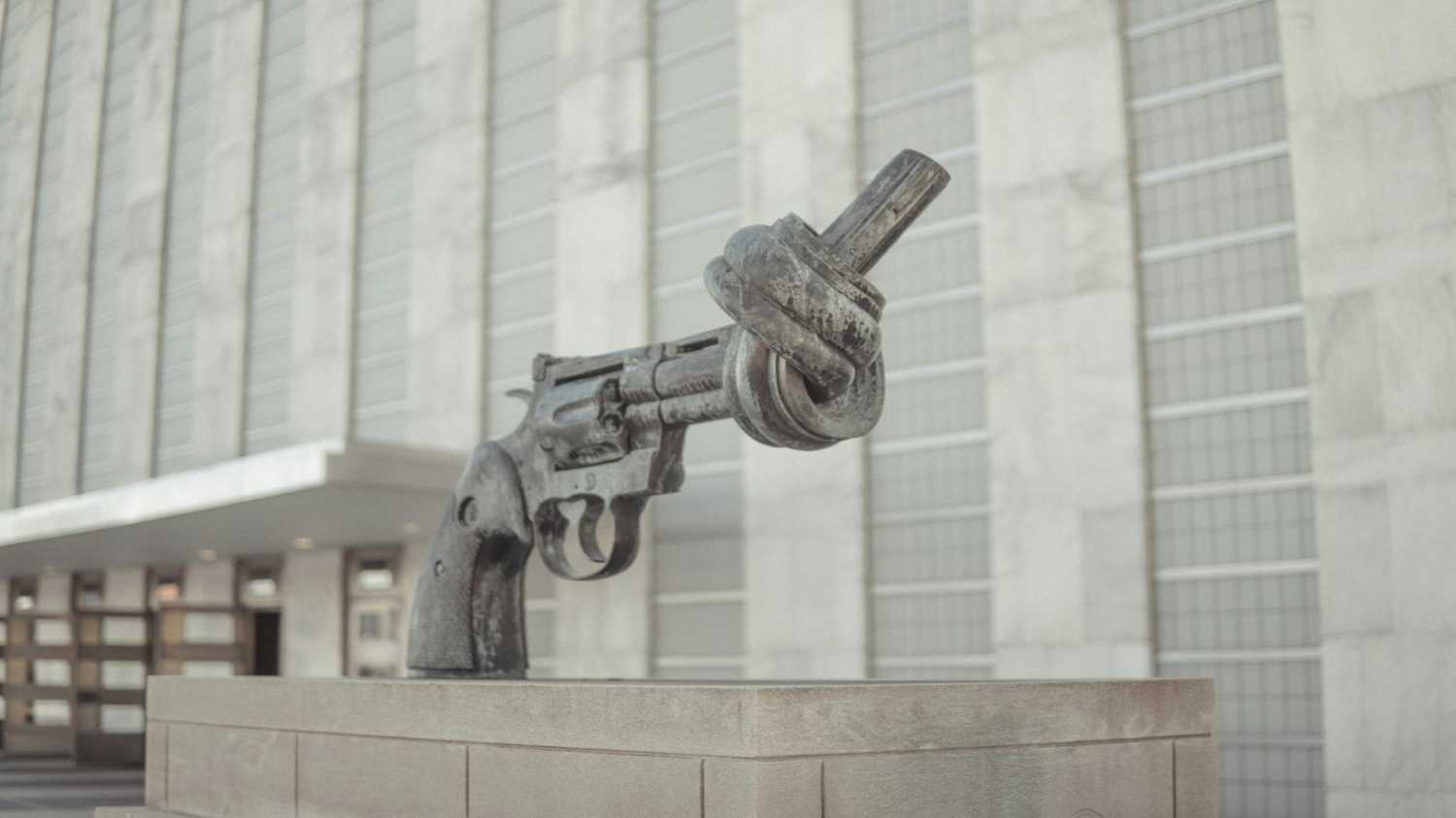The International Day of Non-Violence, celebrated on October 2, honors the birth anniversary of Mahatma Gandhi, a global icon of non-violent resistance. This day, designated by the United Nations in 2007, reminds the world of the power of non-violence in achieving social and political change. With global tensions, conflicts, and inequalities persisting, Gandhi’s message remains vital in our quest for peace.
As we observe the International Day of Non-Violence 2024, the need for education, awareness, and active promotion of peaceful conflict resolution becomes more pressing than ever.
You May Like: Top 8 Facts about Peace You Should Know!
Historical Background: Establishing the International Day of Non-Violence
- Origins of the Day: The UN General Assembly passed a resolution on June 15, 2007 (A/RES/61/271), officially establishing October 2 as the International Day of Non-Violence. This resolution, co-sponsored by 140 nations, was introduced by India to honor Gandhi’s legacy and advocate for global peace.
- The Message of Non-Violence: The day aims to disseminate the principles of non-violence, focusing on public education and awareness to promote tolerance, understanding, and peaceful conflict resolution.
Dates for Upcoming Observances
- 2024: October 2, Wednesday
- 2025: October 2, Thursday
- 2026: October 2, Friday
- 2027: October 2, Saturday
- 2028: October 2, Monday
Theme for International Day of Non-Violence 2024
- “The Politics of Ordinary People”: The theme for International Day of Non-Violence 2024 highlights the role of individuals in promoting peace and tolerance. It emphasizes that ordinary people have the power to make extraordinary changes through peaceful means, challenging systems of violence and oppression without the use of force.
Mahatma Gandhi: The Architect of Non-Violent Resistance
- Gandhi’s Legacy: Mahatma Gandhi was a pivotal figure in India’s struggle for independence from British colonial rule. His philosophy of non-violence (Satyagraha) advocated for peaceful civil disobedience to achieve justice and equality. This method rejected violence and emphasized truth, compassion, and justice.
- Inspiration for Global Movements: Gandhi’s belief that “non-violence is the greatest force at the disposal of mankind” has inspired countless movements for civil rights and social justice, including those led by figures like Martin Luther King Jr. and Nelson Mandela.
Gandhi’s Most Inspiring Quotes on Non-Violence
- “An eye for an eye only ends up making the whole world blind.”
- “You must be the change you wish to see in the world.”
- “Non-violence is a weapon of the strong.”
- “The weak can never forgive. Forgiveness is the attribute of the strong.”
- “Non-cooperation with evil is as much a duty as is cooperation with good.”
These timeless quotes encapsulate Gandhi’s belief in the power of non-violence and continue to inspire individuals and movements across the globe.
The Principle of Non-Violence: Defining Peaceful Resistance
- What is Non-Violence?: Non-violence, also known as non-violent resistance, is a strategy that rejects physical violence to achieve social or political change. It is an active form of struggle that involves peaceful protests, civil disobedience, and boycotts to challenge oppression and injustice.
- Categories of Non-Violence:
- Protest and Persuasion: Marches, demonstrations, and public vigils.
- Non-Cooperation: Boycotts, strikes, and other forms of peaceful non-compliance.
- Non-Violent Intervention: Blockades, sit-ins, and peaceful occupations.
This strategy is rooted in the idea that rulers depend on the consent of the governed, and by withdrawing that consent, change can be achieved without violence.
The Universal Relevance of Non-Violence Today
- Global Conflicts: In an increasingly interconnected world, the principles of non-violence are crucial in resolving conflicts, from civil wars to political unrest. The International Day of Non-Violence 2024 serves as a reminder that peaceful solutions to global issues can lead to sustainable and lasting peace.
- Non-Violence as a Social Force: The philosophy of non-violence is not limited to pacifism. It has evolved into a powerful tool for achieving equality, justice, and social progress through collective action and peaceful resistance.
How to Observe International Day of Non-Violence 2024

- Educate Yourself: Learn about the life and teachings of Mahatma Gandhi. His philosophy of peace, truth, and justice remains an essential guide for non-violent movements today.
- Join Global Events: Many organizations and communities host events on October 2 to commemorate the day, including discussions, workshops, and peace marches.
- Promote Random Acts of Kindness: Engage in simple acts of kindness to spread positivity and foster a spirit of peace in your community.
- Advocate for Peace: Use this day to raise awareness about causes that promote peace, tolerance, and human rights. Organize peaceful events, vigils, or campaigns that align with Gandhi’s philosophy.
he Role of UNESCO and Global Organizations
- UNESCO’s Contribution: Global institutions like UNESCO play a critical role in promoting non-violence by organizing cultural exchanges, educational campaigns, and peace-building initiatives.
- Involvement of Youth: UNESCO’s initiatives often focus on engaging the youth in peace-building activities, encouraging the next generation to uphold the ideals of non-violence in shaping a better world.
The Significance of Non-Violence in Today’s World
- Resolving Modern Conflicts: The principles of non-violence are vital in addressing modern global issues, from armed conflicts to political oppression. Non-violent resistance has proven effective in achieving significant social change, as seen in movements for civil rights, gender equality, and anti-colonial struggles.
- Non-Violence in Social Movements: Movements such as Black Lives Matter and environmental campaigns continue to use non-violent protests to advocate for justice and equity, proving that peaceful means can drive powerful results.
Click Here: 5 Best Air Purifying Indoor Plants
Conclusion: A Global Commitment to Peace
The International Day of Non-Violence calls upon every individual, organization, and government to adopt non-violent means of resolving conflicts and promoting social justice. As we observe the International Day of Non-Violence 2024, let us reflect on Mahatma Gandhi’s legacy and recognize that peace begins with each of us. Through education, advocacy, and simple acts of kindness, we can continue to build a world grounded in peace, tolerance, and justice.
By understanding and applying the principles of non-violence, we empower global change and foster a culture where dialogue, empathy, and mutual respect triumph over hatred and aggression.
FAQs
Why is World Non-Violence Day celebrated?
It is celebrated to promote the principles of non-violence, especially in the context of Mahatma Gandhi’s philosophy and to encourage peaceful resolutions to conflicts.
What is International Day of Non-Violence Current Affairs?
This refers to contemporary events and discussions related to non-violence initiatives, campaigns, and activities held around the world, especially on October 2nd.
What is October 2nd International day?
October 2nd is observed as the International Day of Non-Violence, commemorating the birth anniversary of Mahatma Gandhi, who championed non-violent resistance.
How to celebrate International Day of Non-Violence?
It can be celebrated through educational events, workshops, peace marches, discussions, and community service aimed at promoting non-violence.
Who started non-violence?
Mahatma Gandhi is often credited with developing the modern concept of non-violence (ahimsa) as a powerful tool for social and political change.
What is nonviolence in short notes?
Nonviolence is a philosophy and strategy for social change that rejects violence in favor of peaceful resistance and civil disobedience.
International non-violence Day started in which year?
The International Day of Non-Violence was established by the United Nations in 2007.
International Day of Non-Violence 2024 theme?
The theme for the 2024 International Day of Non-Violence will be announced closer to the date; it typically focuses on peace and conflict resolution.
Why is International Day of Non-Violence celebrated?
It is celebrated to promote peace, understanding, and the power of non-violent actions in addressing injustices.
Why is non-violence important?
Non-violence is important as it fosters peaceful coexistence, reduces conflict, and encourages dialogue rather than aggression.
Why did Mahatma Gandhi believe in non-violence?
Gandhi believed that non-violence was the most powerful weapon for oppressed people and that it leads to true and lasting change.
What is the significance of October 2nd?
October 2nd is significant as it marks the birth of Mahatma Gandhi and serves as a reminder of his teachings on peace and non-violence.
What is Non-violence?
Non-violence is a principle of resolving conflicts without the use of physical force, promoting peaceful means to achieve social or political goals.
Why is nonviolence important?
It is important as it allows for the resolution of conflicts without causing harm, promotes justice, and can create sustainable change in society.
What is the definition of nonviolence?
Nonviolence is the practice of advocating for social change without the use of violence, focusing on peaceful means.
What is Gandhi’s concept of nonviolence?
Gandhi’s concept of nonviolence (ahimsa) encompasses love, compassion, and respect for all life, emphasizing that true strength comes from peaceful resistance.
What are the principles of nonviolence?
The principles include respect for all individuals, compassion, the use of peaceful methods for conflict resolution, and a commitment to justice.
Importance of non-violence?
Non-violence is crucial for fostering harmony, promoting social justice, and enabling individuals and communities to advocate for their rights peacefully.
Non-violence examples?
Examples include peaceful protests, civil disobedience, dialogue, and negotiation to resolve disputes without resorting to violence.
What is called non-violence?
Non-violence refers to the philosophy and practice of rejecting the use of physical force to achieve social or political goals.
What is a non-violence essay?
A non-violence essay discusses the principles, importance, and historical examples of non-violent movements and philosophies.
Non-violence movement in India?
The non-violence movement in India, led by Gandhi, sought to achieve independence from British rule through peaceful protests, boycotts, and civil disobedience.
Non-violence quotes?
Quotes on non-violence often emphasize peace, justice, and the strength of love, such as Gandhi’s famous saying, “Non-violence is the greatest force at the disposal of mankind.”

